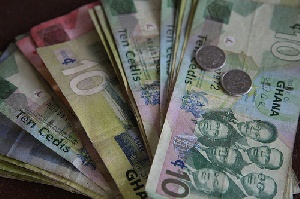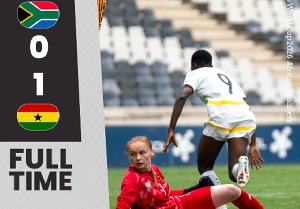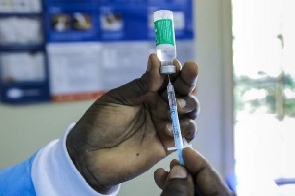Poor power supply, lack of access to credit, and high interest rates are the main challenges to businesses, causing a dip in confidence in the first quarter of the year, says the Association of Ghana Industries (AGI).
Confidence in the business environment as measured by the AGI Business Barometer dropped from 40.4 in the last quarter of 2012 to 32.6 in the first quarter of this year, with businesses naming the precarious electricity situation as the biggest obstacle to their operations.
“The private sector is concerned about the continuous power cuts witnessed in the country over the last six months because it disrupts business operations,” the AGI said in its summarised report of business sentiments between January-March 2013.
“These disruptions lead to shortfalls in production and revenue losses to businesses that are unable to procure generators to continue their operations. On the other hand, the power cuts lead to increased cost of doing business for companies that can afford to invest in contingency plants and fuel to undertake normal operations,” the report emphasised.
It said regular power cuts, as the country has experienced since August last year, limit industry’s international competitiveness.
These worries come as no surprise as entrepreneurs and business leaders have complained variously about the debilitating effects of the protracted power crisis.
Mr. Terence Darko, President of the Ghana Employers Association (GEA), has said Ghana risks becoming an uncompetitive business destination in view of the difficulties with electricity supply.
“Businesses are recording lower capacity-utilisation levels, higher production costs associated with acquisition and operation of high-cost industrial stand-by generators, and loss of jobs,” he said at the association’s seventh Chief Executives’ Breakfast Meeting in Accra.
Though Government has promised an end to the power-rationing exercise - following the coming on-stream of 133 megawatts of electricity from the Bui dam - the AGI said businesses have already incurred losses through lost output, low revenues, and the general increase in operating costs.
Poor access to credit and the associated high cost continue to haunt businesses, the AGI’s survey revealed - confirming the Bank of Ghana (BoG)’s indication that banks’ credit stance has recently been tightened for small businesses - which constitute 80 percent of the AGI’s membership.
Bank of Ghana data reveal that the average interest rate on a bank loan is 25.7 percent, which seems to be miles away from the average return on a business investment in the economy.
While all sizes of business ranked power as their most deleterious challenge, large enterprises cited depreciation of the cedi and competition from imports as the next two biggest threats to their survival.
Ghana’s cedi continues to remain weak despite a slowdown in its previously pernicious slide against the dollar. The currency has lost more than 3 percent this year against the dollar, on top of a 17.5 percent fall in 2012.
A weak cedi raises the input costs of businesses such as breweries and consumer-goods manufacturers that source raw materials from abroad. Unilever Ghana Limited recently said its operating profit dropped by 36 percent in 2012 on account of the currency’s sharp slide and a general increase in the cost of goods and services.
With consumer inflation picking up since the increase in fuel prices in February, business costs look set to rise; and analysts have said interest rates will remain high because of Government’s huge financing needs.
Deficit financing at expensive interest rates has a crowding-out effect on the private sector’s ability to borrow at affordable interest rates, said Sampson Akligoh, head of research at Databank in an interview with the B&FT.
“Clearly, these [high interest rates] detract from private-sector growth and profitability, and will keep the economy below its potential growth level over the medium-term,” he said.
Ghana’s economy, which grew by an average of 8 percent per annum in the last five years, could grow at an annual rate exceeding 9 percent but for weak macroeconomic policies, energy supply disruptions and expensive credit, he argued.
Business News of Monday, 6 May 2013
Source: B&FT
Business confidence down, says AGI
Entertainment












